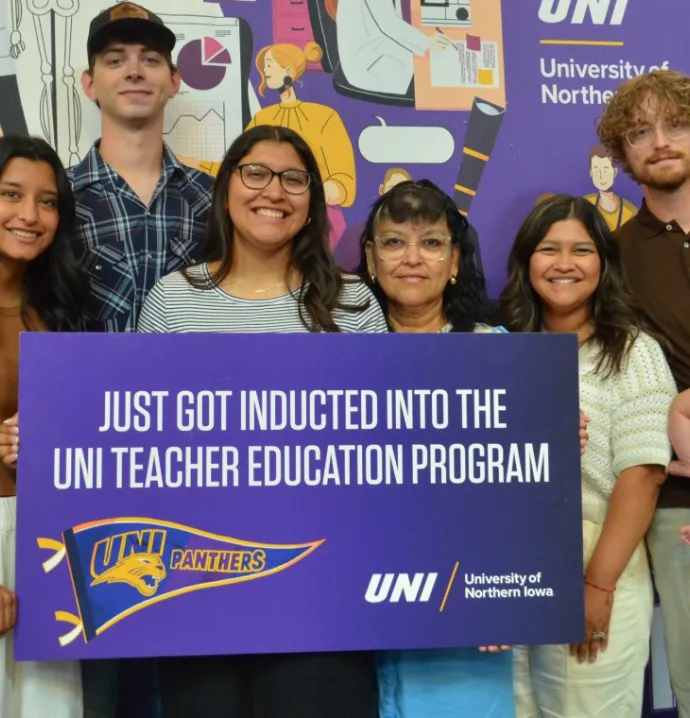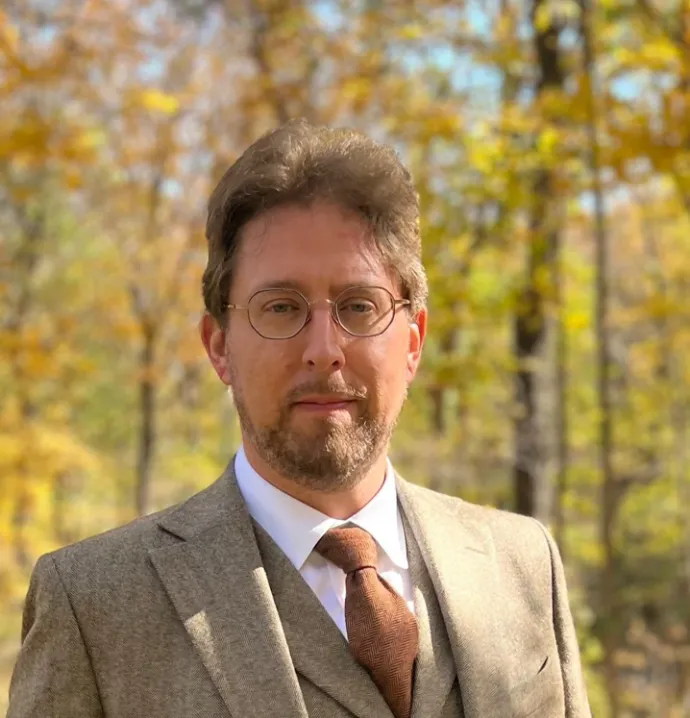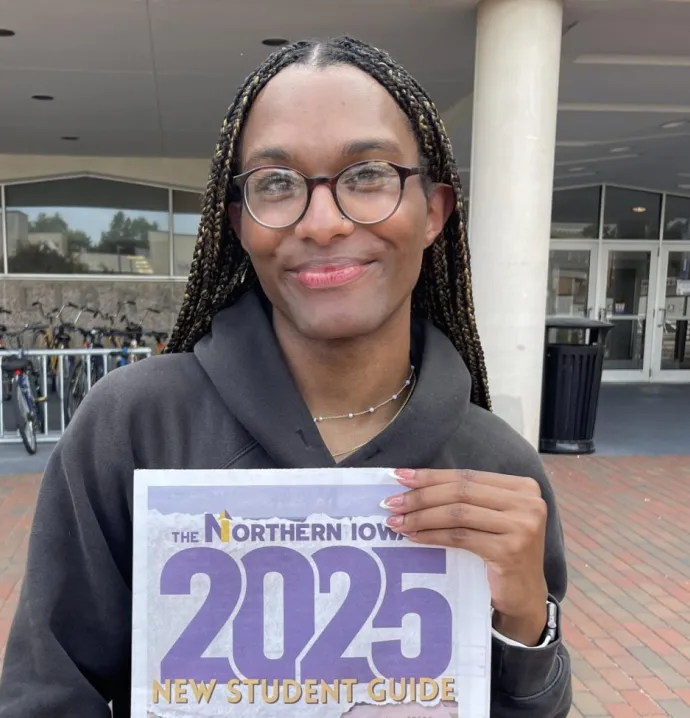As a nurse, she saved his life. Now at UNI, they’re co-workers.
As a nurse, she saved his life. Now at UNI, they’re co-workers.
It was 1 a.m. on March 6 when Mark Welford awoke with a pain in his chest. At first, he thought it was heartburn. It quickly became clear he needed urgent medical treatment.
“It’s a pain like nothing else I’ve had,” said Welford, who is the head of the Department of Geography at UNI. “It’s a crunching pain that I could feel literally in every cell of the body. It’s just absolute agony with every heartbeat.”
His wife, Theresa, called 911, and emergency crews arrived within minutes. “I remember putting my hand on the door, pulling myself up onto the gurney, and then I blacked out.”
For the first time that morning, his heart stopped beating.
“I remember putting my hand on the door, pulling myself up onto the gurney, and then I blacked out.”
At nearby Waverly Health Center, staff nurse Natalie Nedza waited for the ambulance to arrive. Through radio communication, her team heard the patient had flatlined. “Patients that have cardiac arrest in the field and don’t have access to immediate defibrillation or cardiac medications don’t do very well.”
Luckily, several factors played a role in saving Welford’s life. In addition to his home’s close proximity to Waverly Health Center, the medical professionals equipped with life-saving technology in the ambulance were able to get his heart beating again before he arrived at the emergency department. Welford regained consciousness.
“We all attended to him very, very quickly,” said Nedza. “My job that night was to make sure things happened rapidly, and that we were able to get the patient, Dr. Welford, out of our hospital and into a hospital that could provide him with longer term care.”
It was on the way to the second hospital that Welford flatlined a second time. Nedza wasn’t sure if he survived the trip.
Weeks later, Natalie Nedza started her new role as a nursing faculty member at UNI. Her first day started out pretty routine. The Innovative Teaching and Technology Center (ITTC) is home to UNI’s new nursing program, where she spent her morning unpacking boxes of new equipment with fellow nursing faculty. The building also houses the geography department and Mark Welford’s office.
Natalie soon heard a distinct, familiar voice. “I can't see the person. I just hear a voice and immediately know. ‘I know that voice.’”
Eventually, he came around the corner.
“I locked eyes with him - and I knew right away that I had taken care of this person.”
The fact that Nedza had played a direct role in saving Mark Welford’s life was a secret to everyone else in the room, including Welford. “He's telling his story. And I'm reliving it, because I was there.” But because of privacy laws, Nedza wasn’t able to reveal how the two had originally crossed paths. “I winked at him a couple times to say, ‘I know you, but I can't say that.’”
Welford recalls, “Natalie is looking at me, I kind of asked like, ‘I think you're familiar, but I'm not 100%.’”
Finally, he made the connection.
“He looked at me and pointed and said, ‘You were my nurse. You were the charge nurse that night. You took care of me?’ And I said, ‘Yes sir, I did.’”
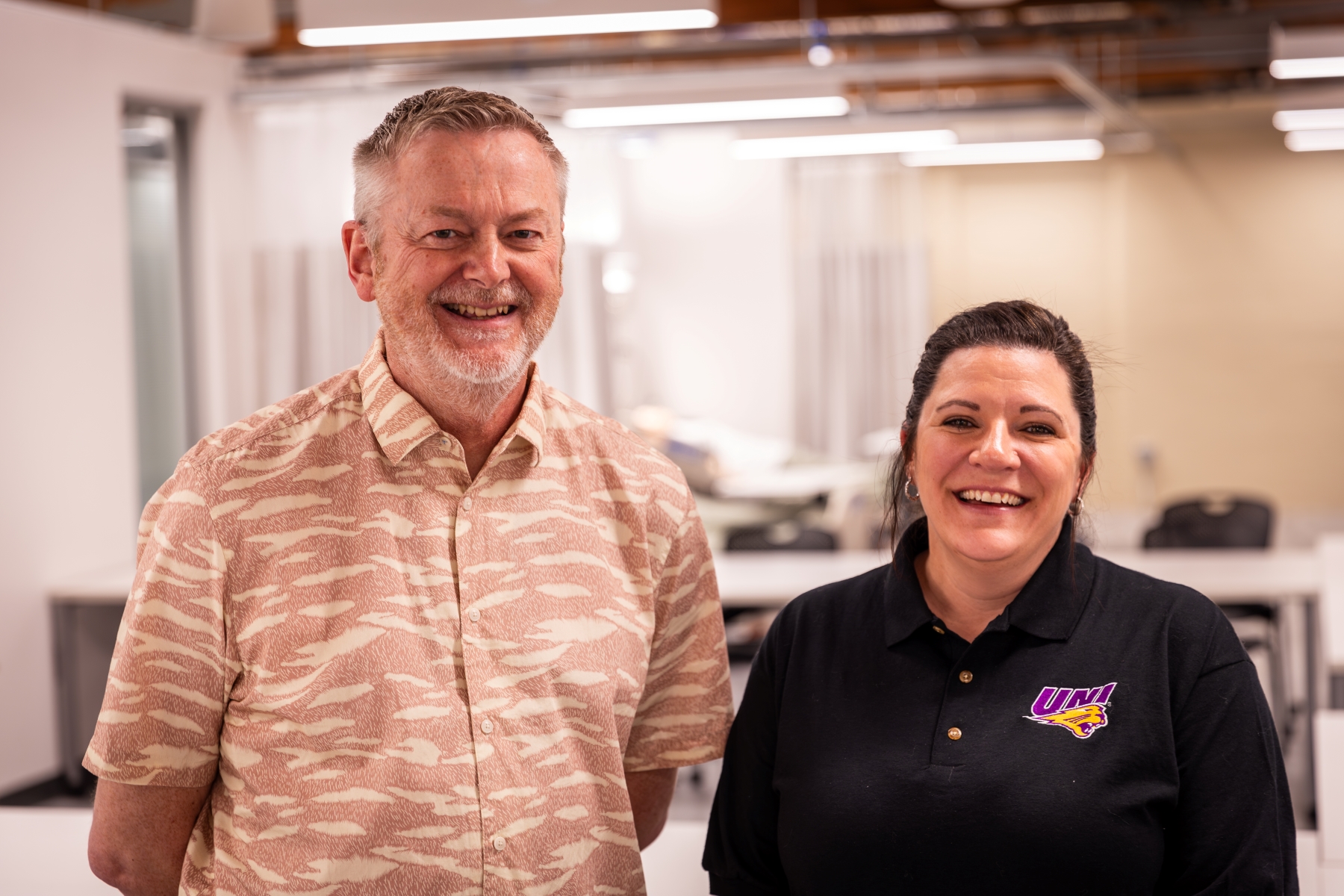
Looking back, Welford remembers Nedza commanding the room, providing him comfort during his time of emergency.
“She was just extraordinary. I mean, she organized that place, she ran it. They did everything, paid attention to her. Even though I was in tremendous pain, I felt I was in good hands. And a lot of that was due to her presence and her authority in that room.”
“Nurses are right there on scene immediately when the patient comes to the door,” said Nezda. “We are the first person they interact with. It can be a life or death moment if the nurse doesn't know sick versus not sick. So that is our job – to provide immediate care, starting IVs, doing the life-sustaining things immediately when the patient comes to the door.”
The man she had helped several weeks before was on her mind as she prepared to take on her new role at UNI. “I worried about Mark for days after he got so sick in our emergency department. And having been on the side of the care to know exactly how sick he was, I wasn't sure what the outcome would be.
“Knowing that I was going to be a faculty member at UNI, and he had disclosed to me that he was a professor at UNI, as I walked on campus I was thinking, ‘Oh gosh, I hope I see him’ or ‘Oh gosh, I hope he's still here.’”
Hearing his voice, seeing him doing well, finally provided Nedza a wave of relief.
Mark Welford is much better now. He walks. He rows. He attends cardiac rehabilitation three times a week at Waverly Health Center. He’s looking forward to a trip to Australia with his wife, and another trip to Indonesia. He’ll continue to lead birding tours around the globe. “I will always be grateful for the actions of everybody who helped me on March 6th see another sunrise,” he says. “Just very, very grateful. I enjoy life.”
He occasionally visits the new occupants in the ITTC as the Department of Nursing and Public Health makes its final preparations for incoming students, who will each have an opportunity to impact others with life-saving care, just as Nedza did for him.
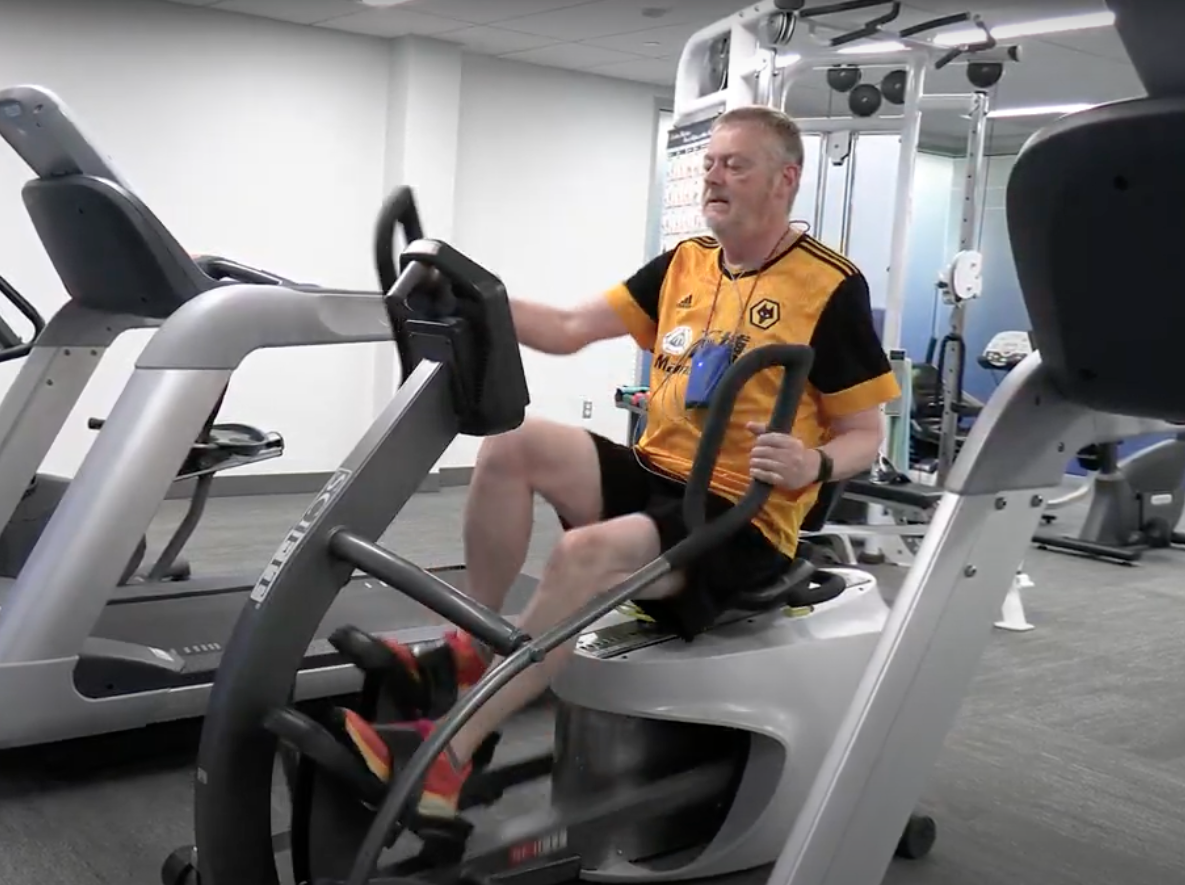
“Nursing is a lifestyle. It is not just a career, it is taking care of everyone in our community, our neighbors, everyone,” said Nezda. “Every nurse in their career will have a moment when they get to help save someone, and they'll remember that forever.”


